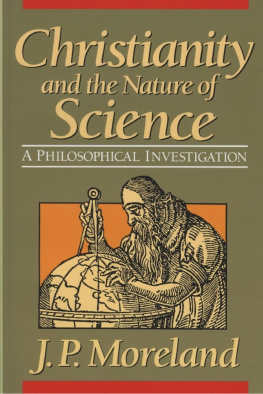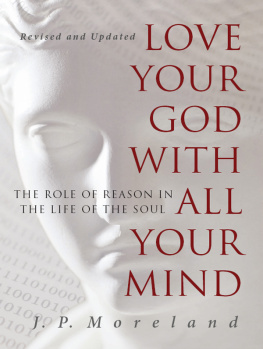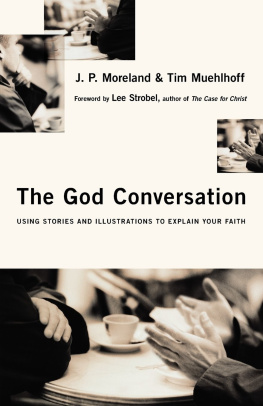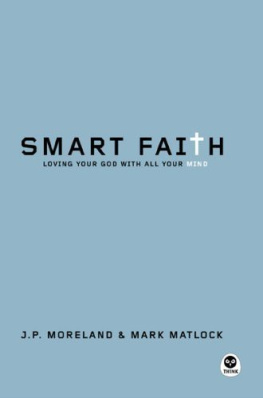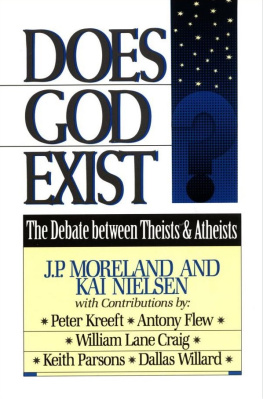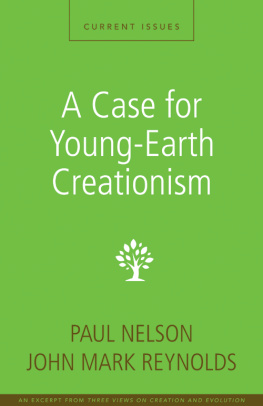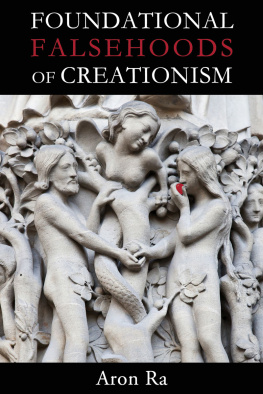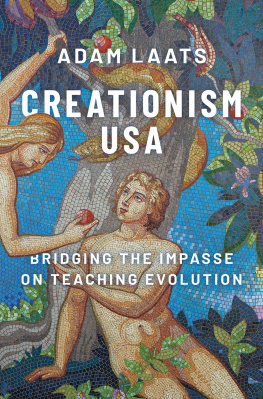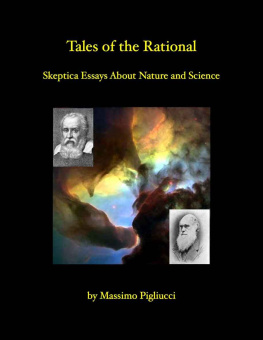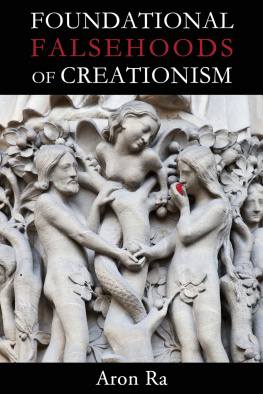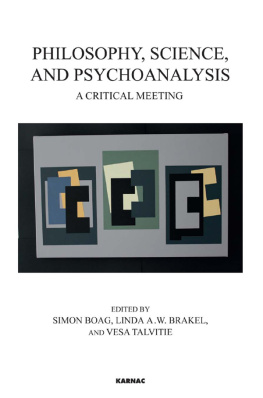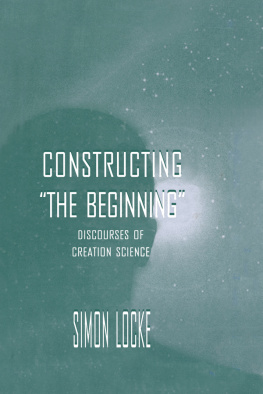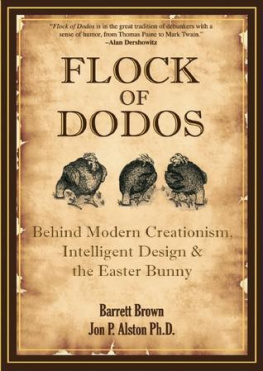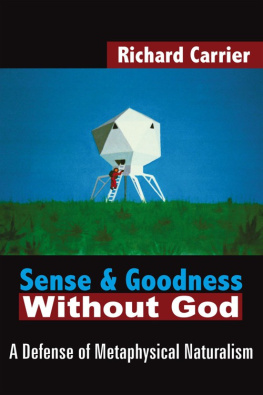J. P. Moreland





To Bob Blair, Bill Roth, Walt Russell, Dallas Willard These are among the Dunedain Men of Old, Men of Valor
Contents
II
Acknowledgments
Several people played special roles in my life while I was writing this book. They helped me, in various ways, to complete it. First, several professors at Liberty University have encouraged me, though of course the views expressed are mine and do not necessarily meet their approval-Professors David Beck and Gary Habermas (philosophy); John Morrison and Dan Mitchell (theology); Dick Patterson (Old Testament); Robert Littlejohn, Paul Sattler, and Bruce Triplehorn (biology); and Robert Chasnov (physics).
Second, I wish to thank my students at Liberty University and Grace Fellowship Church in Baltimore. They endured my sometimes pedantic and exploratory wanderings in science, philosophy, and theology. Richard Loper in particular made helpful comments on a rough draft.
Third, a group of serious Christian lay persons provided finances that allowed me to buy materials for study and to have leisure for reflection. Their actions set a standard for other Christians who wish to promote Christian scholarship. Jim and Jeannie Duncan, Tim and Bobbi Smick, Ben and Laura Abel, and Jonathan and Suzanne Glenn all befriended me in this and other ways.
Fourth, several of my friends inspired and sustained me through their lives and examples: Walter Bradley, Don Smedley, Marty Russell, Patty Roth, Scott and Sally Rae, Klaus and Beth Issler, Bill Craig, and Norman Geisler. I also want to mention E. Calvin Beisner. His philosophical and editorial comments on an earlier draft of the manuscript were invaluable.
Finally, my wife, Hope, and our daughters Ashley and Allison provided family identity and unity that gave me strength for the hard work and long hours of writing.
Introduction
t is no mere truism to say that we live in the modern world. People tend, at least in the Western world, to think in secular, naturalistic terms. True, cults and other deviant forms of religious expression are on the rise. But these phenomena underscore the secular nature of the modern world, they do not refute it, because they are perceived by those in the modern Zeitgeist as irrational, emotional, even romantic expressions of the human thirst for meaning, not as rationally defensible conceptualizations of the religious mode of life.
The Christian community is called to witness to and interface with modern culture in a humble, Christ-honoring, and well-informed way. Over seventy-five years ago evangelical Presbyterian scholar J. Gresham Machen wrote, "False ideas are the greatest obstacles to the gospel. We may preach with all the fervor of a reformer and yet succeed only in winning a straggler here and there, if we permit the whole collective thought of the nation or of the world to be controlled by ideas which, by the resistless force of logic, prevent Christianity from being regarded as anything more than a harmless delusion." Machen's penetrating insight is as true today as ever. Theologian R. C. Sproul has called this the most anti-intellectual period in the history of the church. Charles Malik, former president of the United Nations, warns that the greatest danger facing modern evangelicalism is anti-intellectualism.
This brings us back to the modern world. Undoubtedly the most important influence shaping the modern world is science. People who lived during the Civil War had more in common with Abraham than with us. From space travel and nuclear power, anesthesia and organ transplants, computers and brain bisections, to DNA research, optics, and lasers, ours is a world of modern science.
If the church is to speak to the modern world and interact with it responsibly, it must interact with modern science. Christians cannot afford to promulgate a dichotomized stereotype of Christianity wherein a believer's spiritual life is a private, individualized faith operating in some upper story (to borrow Francis Schaeffer's term) while his secular life is public and involves reason and argument.
The purpose of this book is to assist and encourage Christians to think more clearly about the relationship between science and theology. There are different models for how science and theology should be integrated. I discussed several in Scaling the Secular City and will not pursue that discussion in detail here. Hence it may be helpful to say a word about a particular model of scientific and theological interaction: the complementarity view.
According to this view, science and theology are complementary, non interacting, noncompeting descriptions of the world. They use different languages and methods and ask and answer different questions. Thus, the phenomenon of conversion can be described from a chemical, biological, psychological, sociological, or theological point of view. Each vantage point is complete in its own sphere and uses its own language. None of them, even in principle, interacts or conflicts with any other. Applied to the question of the origin and development of life, the complementarity view takes theistic evolution as the proper way to integrate theology and science.
I respect this approach to integration. It offers much to anyone thinking about science and religion, and there are several areas where science and religion do complement each other; for example, several facets of conversion may be described psychologically or sociologically in a way that complements theological descriptions. Advocates of this approach deserve thanks for their hard thinking and the rich resources they have given to the church to aid in the integrative task.
However, the complementarity view fails as a total model of integration. It can and should be incorporated into a total picture of' the science/theology interaction, but it is the tail that must not wag the dog. The complementarity view is too clean, too neat, too easy in its summary dismissal of areas of science and religion that, prima facie, appear to conflict. If taken as an entire model, the complementarity view tends to compartmentalize science and religion. It also tends toward fideism. Thus it fails to respond responsibly to secular questions about why one should believe in God in the first place, especially granted how those questions are framed in a scientistic culture. Further, it comes perilously close to deism in its reduction of much of God's primary causal activity (direct, immediate, miraculous interventions into the natural world) to secondary causality (the indirect, mediate use of natural processes to secure some divine intent). It also fails to give proper value to areas where science is incomplete. When those areas are predictable from a normal, grammatical/historical hermeneutic of Scripture, they present legitimate opportunities for believers to point beyond the physical world to the spiritual and are not mere god-of-the-gaps invocations to cover our ignorance.

